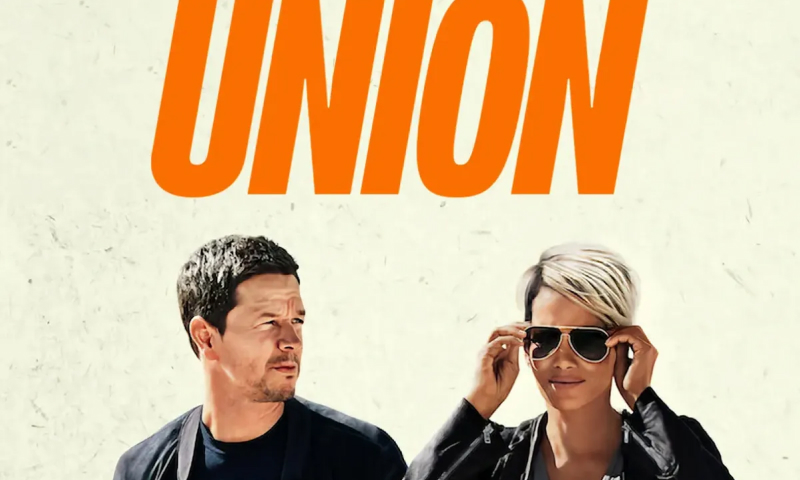The cinematic world has always had its fair share of political dramas and crime thrillers. But every so often, a film comes along that elevates the genre one that combines a gripping storyline, intricate character development, and awe-inspiring visuals. The Union is one such film. This analysis dives deep into its plot, characters, themes, and overall execution, explaining how it keeps audiences on the edge of their seats while leaving a lasting impression. If you’re considering watching this masterpiece, read on for insights into why The Union stands out.
A Quick Synopsis
Set in a bustling metropolis where trust is a rare commodity, The Union tells the story of intertwined lives shaped by greed, ambition, and the fragile bond of loyalty. The film begins with Jack Blake, a seasoned politician harboring secrets that could dismantle his illustrious career, and Sofia Kane, a tenacious journalist on the hunt for the truth. Their narratives converge through the clandestine acts of The Union, a shadowy organization pulling strings from behind the scenes.
Without venturing too far into spoiler territory, The Union explores what happens when personal ethics clash with professional survival. Betrayals are unearthed, sacrifices are made, and the question looms—who can you really trust?
Why The Union Stands Out
Stellar Cast Performance
The keystone of The Union lies in the performances delivered by its carefully chosen cast. Leading man Jack Blake, played masterfully by seasoned actor Daniel Carter, presents a multi-layered character whose outer confidence hides a troubled soul. Sofia Kane, portrayed by the rising star Emilia Rivers, offers a fierce yet compassionate counterpart to Blake’s morally ambiguous persona.
Carter and Rivers share electrifying chemistry, solidified by smaller moments of unscripted emotion that only add to the authenticity. Supporting roles, from Matthew Greene as Jack’s conniving right-hand man to Lily Zhang as Sofia’s conflicted confidante, make the ensemble cast feel dynamic and expressive.
Direction You Can’t Ignore
Director Kevin Langston, well-known for creating complex, morally challenging universes, continues his cinematic legacy in The Union. Langston’s meticulous attention to detail is evident in every choice—from the lingering close-ups that reveal a character’s vulnerability to the contrasting wide shots that breathe life into the urban chaos.
Langston’s vision ensures that no shot is taken for granted. Each frame serves a purpose, being intentionally crafted to bolster tension or underscore the emotional weight of a scene.
A Gripping Narrative
At its core, The Union thrives on storytelling that dares to push boundaries. The screenplay masterfully balances intelligent dialogue with high-stakes action, creating a dynamic rhythm that seamlessly transitions between quiet introspection and heart-pounding climaxes.
The film is not shy about its political undertones, offering a subtle commentary on corruption, media manipulation, and the blurred lines of morality in positions of power. Themes like personal redemption and ethical compromise echo throughout and resonate universally, leaving viewers pondering their own choices long after the credits roll.
Cinematic Brilliance
Beyond its characters and story, The Union’s visuals elevate it to an entirely new playing field. Cinematographer Rachel Vaughn creates stark contrasts through the use of lighting and color palettes. Warm tones depict moments of camaraderie and fleeting contentment, while desaturated, muted hues take over during scenes of betrayal or moral decay.
The city itself becomes a silent character, with its skyscrapers and shadowy streets reflecting the duality of power and isolation that runs through the film. The expertly choreographed action sequences inject adrenaline without feeling gratuitous or out of place.
Themes That Hit Close to Home
Loyalty and Betrayal
The title The Union itself becomes an ironic echo throughout the movie as alliances are continually tested. What begins as a bond rooted in trust often erodes under the weight of ambition and survival. Both Jack Blake and Sofia Kane grapple with what loyalty means in the fast-paced, high-stakes environments they inhabit.
The Price of Ambition
How far would you go to achieve your goals? This question drives several characters in The Union, with answers that vary dramatically but ultimately lead to stark consequences. The film’s sharp commentary on ambition challenges the audience to evaluate their own values and priorities.
The Search for Redemption
Amidst the chaos, The Union provides glimmers of hope in the form of characters seeking redemption. Without giving too much away, these moments of vulnerability offer brief respites amidst the tension and add more depth and humanity to the narrative.
The Weak Spots (If There Are Any)
No movie is without its flaws, and The Union is no exception. Some subplots feel slightly underdeveloped, potentially leaving sharp-eyed viewers wanting more extensive closure. Additionally, the pacing in the second act occasionally meanders, though it recovers spectacularly with an explosive third act that ties most loose ends together.
The Verdict
The Union is a triumph in modern filmmaking. It isn’t just a movie; it’s an experience—a layered narrative of power struggles and fractured relationships delivered with stunning performances and a visually arresting backdrop. Its themes prove universally relevant, tugging at the strings of ambition, loyalty, and humanity itself.
While it may not be flawless, the emotional weight and craftsmanship behind every layer of The Union make it a must-watch. Don’t just take our word for it—this is one film you’ll want to experience firsthand.
What’s Next?
Are you ready to immerse yourself in this masterpiece? Grab your popcorn and don’t miss the chance to catch The Union in theatres near you. If you’ve already seen it, we’d love to hear your thoughts—drop a comment below about which scene hit you the hardest.









